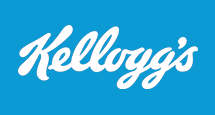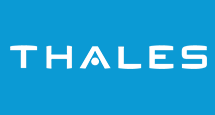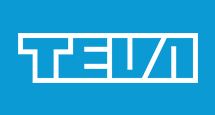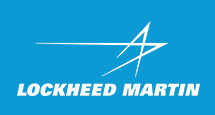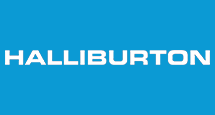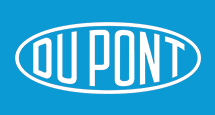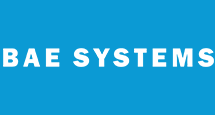Visiongain Publishes Vaccine Contract Manufacturing Market Report 2023-2033
24 May 2023
Visiongain has published a new report entitled Vaccine Contract Manufacturing Market Report 2023-2033: Forecasts by Process (Upstream Process, Downstream Process), by Downstream Process (Fill & Finish Operations, Analytical & QC Studies, Vaccine Packaging), by Upstream Process (Mammalian Expression Vaccine, Bacterial Expression Vaccine, Yeast Expression Vaccine, Baculovirus/Insect Expression Vaccine, Other), by End-use (Human Use, Veterinary), by Type (Subunit Vaccines, Live Attenuated Vaccines, Conjugate Vaccines, Inactivated Vaccines, Inactivated Vaccines, Toxoid Vaccines, Viral Vector Vaccines, Recombinant Vector Vaccines, Other), by Company Size (Small Manufacturers, Mid-sized Manufacturers, Large Manufacturers, Very Large Manufacturers), by Operation (Preclinical, Clinical, Commercial) AND Regional and Leading National Market Analysis PLUS Analysis of Leading Companies AND COVID-19 Impact and Recovery Pattern Analysis.
The vaccine contract manufacturing market was valued at US$2,750.3 million in 2022 and is projected to grow at a CAGR of 13.2% during the forecast period 2023-2033.
The unprecedented demand for vaccine production, driven primarily by the COVID-19 pandemic, has had a significant positive impact on the vaccine contract manufacturing market. The COVID-19 pandemic created an urgent need for a large-scale global vaccination campaign. Governments and organizations worldwide embarked on vaccination drives to curb the spread of the virus and protect public health. This massive undertaking required substantial vaccine production, leading to increased demand for contract manufacturers to support vaccine developers in meeting the supply requirements.
The urgent need for COVID-19 vaccines prompted an accelerated vaccine development process. Vaccine developers focused on expediting research, clinical trials, and regulatory approvals. Contract manufacturers played a critical role in rapidly translating vaccine candidates into commercial production, utilizing their manufacturing expertise and capacity to produce vaccines at an unprecedented pace. The need for vaccine production spurred investments in expanding manufacturing infrastructure. Contract manufacturers invested in building state-of-the-art facilities, upgrading existing ones, and adopting advanced technologies to increase production capacity. These infrastructure developments provided opportunities for contract manufacturers to expand their operations and attract new clients.
The demand for vaccine production prompted technological advancements in manufacturing processes. Contract manufacturers implemented innovative technologies, such as mRNA and viral vector platforms, to produce COVID-19 vaccines. These technological advancements enhanced manufacturing efficiency, scalability, and product quality, driving the demand for contract manufacturing services. The COVID-19 pandemic highlighted the importance of preparedness for future health crises. Governments and organizations recognized the need to establish robust vaccine manufacturing capabilities to respond effectively to emerging infectious diseases. This recognition is expected to drive long-term investments in vaccine contract manufacturing, positioning it as a crucial component of global health security.
How has COVID-19 had a Significant Impact on the Vaccine Contract Manufacturing Market?
COVID-19 has had both positive and negative impacts on the vaccine contract manufacturing market. While it initially led to a surge in vaccine demand and increased opportunities for contract manufacturers, there have been significant negative impacts as well. The pandemic has disrupted global supply chains, affecting the availability of raw materials, critical components, and specialized equipment necessary for vaccine production. Contract manufacturers have faced challenges in sourcing and procuring these essential supplies, leading to delays and disruptions in manufacturing operations.
The unprecedented demand for COVID-19 vaccines created immense pressure on manufacturing capacities worldwide. Contract manufacturers faced challenges in scaling up production rapidly to meet the global demand. Limited manufacturing capacity and resources have resulted in supply shortages and delays in vaccine delivery. The accelerated development and emergency use authorization of COVID-19 vaccines introduced regulatory complexities for contract manufacturers. They needed to comply with stringent regulatory requirements while working on compressed timelines. Adapting to evolving regulatory guidelines and ensuring compliance has posed challenges for contract manufacturers. The pandemic has created financial burdens for contract manufacturers. They needed to invest in expanding manufacturing capacities, upgrading facilities, and implementing additional safety measures to adhere to COVID-19 protocols. These investments, along with price pressures and supply chain disruptions, have put strain on the financial resources of contract manufacturers.
How will this Report Benefit you?
Visiongain’s 375-page report provides 143 tables and 229 charts/graphs. Our new study is suitable for anyone requiring commercial, in-depth analyses for the vaccine contract manufacturing market, along with detailed segment analysis in the market. Our new study will help you evaluate the overall global and regional market for Vaccine Contract Manufacturing. Get financial analysis of the overall market and different segments including type, process, upstream, downstream, and company size and capture higher market share. We believe that there are strong opportunities in this fast-growing vaccine contract manufacturing market. See how to use the existing and upcoming opportunities in this market to gain revenue benefits in the near future. Moreover, the report will help you to improve your strategic decision-making, allowing you to frame growth strategies, reinforce the analysis of other market players, and maximise the productivity of the company.
What are the Current Market Drivers?
Growing Infectious Diseases
The growth in infectious diseases has been a significant driver for the vaccine contract manufacturing market. The increasing prevalence of infectious diseases and the need for effective prevention and control strategies have led to a rising demand for vaccines. This demand, in turn, creates opportunities for contract manufacturers to support vaccine development and production. Outbreaks of infectious diseases, such as COVID-19, Ebola, Zika, and influenza, highlight the urgent need for vaccines to mitigate the spread of the diseases and protect public health. During these outbreaks and pandemics, there is a surge in vaccine development and production to address the global health crisis.
Contract manufacturers play a vital role in rapidly scaling up vaccine production to meet the increased demand. The emergence or re-emergence of infectious diseases presents new challenges and necessitates the development of vaccines. As new pathogens or variants emerge, vaccine developers work on developing vaccines to combat these infectious agents. Contract manufacturers contribute to these efforts by providing manufacturing capabilities, accelerating vaccine development timelines, and meeting the production requirements.
With increased global travel and movement of people, the demand for travel vaccines has also grown. Vaccines for diseases such as yellow fever, typhoid, and hepatitis are essential for travelers visiting regions with specific health risks. Contract manufacturers produce these vaccines to support preventive measures and ensure the health and safety of travelers. Governments across the globe recognize the importance of preventing and controlling infectious diseases. They provide support and funding to vaccine developers and contract manufacturers to boost vaccine production capacity and ensure an adequate vaccine supply. This support encourages contract manufacturers to invest in manufacturing infrastructure, scale up operations, and meet the growing demand for vaccines.
Stakeholder Co-operation Maximizing the Manufacturing Capacity
Stakeholder cooperation plays a crucial role in maximizing the manufacturing capacity of the vaccine contract manufacturing market. Collaboration and coordination among various stakeholders involved in vaccine production, including vaccine developers, contract manufacturers, governments, and regulatory authorities, can significantly enhance manufacturing capacity. Stakeholder cooperation facilitates effective communication and coordination in planning vaccine manufacturing operations.
Vaccine developers work closely with contract manufacturers to share production forecasts, demand projections, and timelines. This collaboration allows contract manufacturers to align their resources, optimize production schedules, and maximize manufacturing capacity to meet the anticipated demand. Stakeholder cooperation enables technology transfer and knowledge sharing between vaccine developers and contract manufacturers.
Vaccine developers possess specialized expertise and proprietary technologies that can be transferred to contract manufacturers, allowing them to scale up production efficiently. Collaborative efforts in sharing technical know-how and best practices help contract manufacturers optimize their processes, resulting in increased manufacturing capacity. Public-private partnerships are essential for stakeholder cooperation in maximizing manufacturing capacity. Governments, international organizations, and vaccine developers collaborate with contract manufacturers to enhance production capabilities. These partnerships involve funding support, technology transfer, and knowledge sharing, enabling contract manufacturers to expand their manufacturing capacity and meet the demand for vaccines.
Where are the Market Opportunities?
Advancements in vaccine technologies have been a significant driver for the vaccine contract manufacturing market. The development of new and improved vaccine technologies has revolutionized the field of vaccinology, leading to increased demand for contract manufacturers to produce these advanced vaccines. The emergence of mRNA (messenger RNA) vaccine technology, exemplified by the successful development of COVID-19 mRNA vaccines, has been a game-changer in the field of vaccine manufacturing. mRNA vaccines offer several advantages, including rapid development timelines, scalability, and potential for targeting a wide range of infectious diseases.
Contract manufacturers have played a pivotal role in producing mRNA vaccines, leveraging their expertise in mRNA manufacturing and contributing to the growth of the market. Viral vector vaccines use modified viruses as carriers to deliver antigenic material and stimulate an immune response. These vaccines have shown promise in preventing various diseases, including COVID-19, Ebola, and HIV. Contract manufacturers with expertise in viral vector production have been instrumental in manufacturing these vaccines, contributing to the expansion of the contract manufacturing market. Advancements in vaccine delivery systems, such as microneedle patches, nanoparticles, and oral formulations, offer innovative ways to administer vaccines. These technologies improve vaccine stability, enhance immunogenicity, and provide alternatives to traditional injection-based methods. Contract manufacturers play a role in producing these specialized delivery systems, contributing to the growth of the market.
Competitive Landscape
The major players operating in the vaccine contract manufacturing market are Ajinomoto Bio-Pharma, Batavia Biosciences B.V., Bavarian Nordic, Catalent Inc, Charles River Laboratories, Curia Global, Inc., Emergent BioSolutions, FUJIFILM Holdings Corporation, ICON plc, IDT Biologika, Lonza, Recipharm AB, Richter-Helm BioLogics GmbH & Co. KG, Vibalogics, and WuXi Biologics. These major players operating in this market have adopted various strategies comprising M&A, investment in R&D, collaborations, partnerships, regional business expansion, and new product launch.
Recent Developments
• On 6th April 2023, Catalent began commencement of a $20 million expansion project at its clinical supply facility in Schorndorf, Germany. The project will see the site’s footprint increase by 32,000 square feet (3,000 square meters) to add capacity for the storage and handling of clinical trial supply materials at controlled room temperatures between 15 and 25 degrees Celsius, and creates space in the original building to accommodate the installation of a new, fully automatic bottle filling line, and a dedicated area for Catalent’s FastChain® demand-led supply service.
• On 1st February 2023, Cidara Therapeutics, Inc. and WuXi XDC announced an expansion of their existing collaboration under which WuXi XDC will provide investigational new drug (IND)-enabling chemistry, manufacturing and controls (CMC) development services for Cidara’s CD73 oncology DFC program.
Notes for Editors
If you are interested in a more detailed overview of this report, please send an e-mail to contactus@visiongain.com or call +44 (0) 207 336 6100.
About Visiongain
Visiongain is one of the fastest-growing and most innovative independent media companies in Europe. Based in London, UK, Visiongain produces a host of business-to-business reports focusing on the automotive, aviation, chemicals, cyber, defence, energy, food & drink, materials, packaging, pharmaceutical and utilities sectors.
Visiongain publishes reports produced by analysts who are qualified experts in their field. Visiongain has firmly established itself as the first port of call for the business professional who needs independent, high-quality, original material to rely and depend on.
